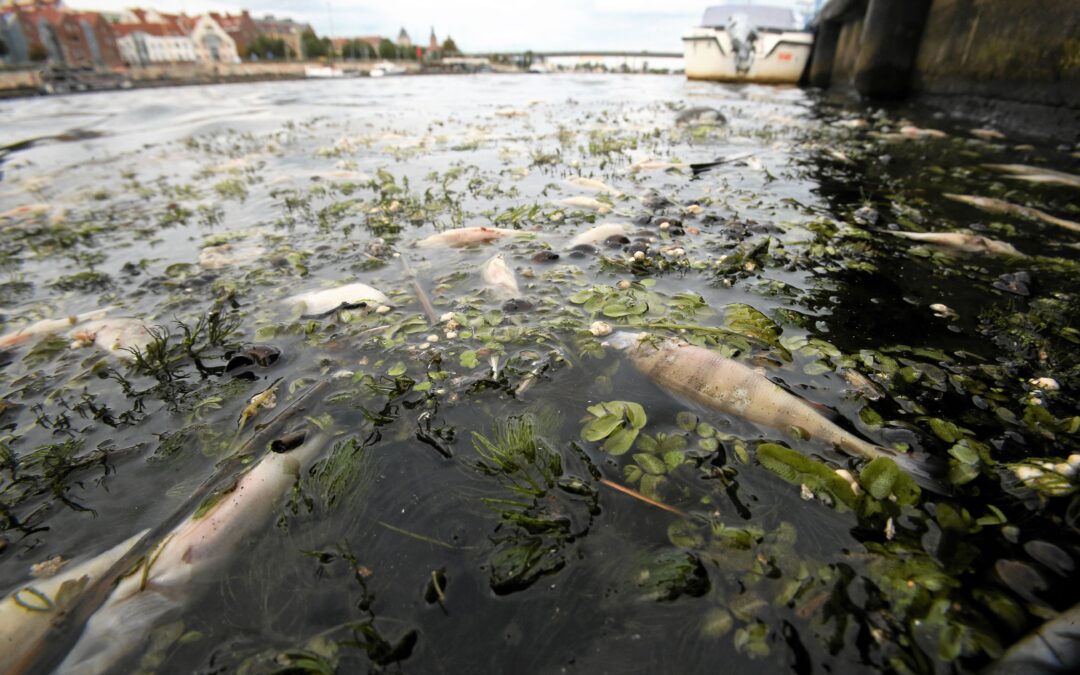Poland Threatens Legal Action Against Germany Over Allegedly Dumped Waste

Poland Threatens Legal Action Against Germany Over Allegedly Dumped Waste
In a tense development in international relations, Poland has issued a strong warning to Germany, threatening legal action over alleged dumping of waste on its territory. The situation has escalated in recent weeks, sparking concerns about the environmental impact and strain on diplomatic ties between the two neighboring European nations.
The dispute centers around claims made by Polish authorities, who assert that Germany has been disposing of hazardous waste illegally on Polish soil. The waste in question is said to include toxic chemicals, industrial byproducts, and other harmful materials that pose a significant risk to public health and the environment.

Reports of the alleged waste dumping first surfaced when local communities near the Polish-German border noticed unusual activities near old industrial sites. Suspicious substances were found in nearby water bodies, raising alarm bells among environmental activists and residents alike. Subsequent investigations by Polish authorities have pointed fingers at German industries, accusing them of trying to evade proper waste disposal regulations by offloading their hazardous waste across the border.
The situation has caused mounting tensions between the two countries, with Poland demanding an immediate explanation and action from Germany to rectify the alleged wrongdoings. Diplomatic efforts have been initiated to address the matter amicably, but as the dialogue between the two governments hit a deadlock, Poland’s patience seems to be running thin.
Polish Prime Minister, Anna Kowalska, expressed her government’s concerns in a recent address, stating, “We cannot and will not tolerate any attempts to harm our environment and endanger the health of our citizens. If Germany fails to address this issue seriously, we will have no choice but to seek justice through legal channels.”

The implications of this environmental dispute extend far beyond territorial boundaries. The apparent negligence on the part of the industries involved may have severe consequences for both countries and the surrounding ecosystem. Toxic waste leakage can pollute groundwater, disrupt wildlife habitats, and harm the livelihoods of local communities.
The European Union (EU) has also taken note of the escalating situation and has called for a thorough investigation to ascertain the veracity of Poland’s claims. The EU, which emphasizes environmental protection and cooperation among its member states, is keen on resolving the issue swiftly to maintain harmonious relations within the bloc.

Germany, in response to the accusations, has expressed surprise and concern. The German Foreign Minister, Klaus Schmidt, stated, “We take environmental protection very seriously in Germany. If any waste disposal violations have indeed occurred, we will investigate the matter thoroughly and hold the responsible parties accountable.”
Nevertheless, Poland remains adamant that concrete actions must be taken to rectify the damage allegedly caused by German industries. Legal experts from both nations are now reviewing international agreements and protocols to determine the appropriate course of action in addressing such cross-border environmental disputes.
This incident has also sparked discussions within the EU on enhancing waste disposal regulations and increasing oversight to prevent similar incidents in the future. Some argue that a comprehensive framework must be established to facilitate inter-country collaboration on waste management, ensuring that no member state faces the burden of handling hazardous waste from others.
Environmental activists and concerned citizens in both Poland and Germany have united to demand swift action and transparency from their respective governments. Protests have been held on both sides of the border, with demonstrators calling for more stringent regulations and closer scrutiny of industrial waste disposal practices.
As the situation unfolds, many are hopeful that a resolution can be reached through diplomatic channels before legal action becomes necessary. However, the potential legal battle looms, raising questions about the complexities of addressing cross-border environmental issues and how international law can be effectively applied to safeguard the environment and uphold accountability.
In conclusion, the allegations of waste dumping by Germany on Polish soil have cast a shadow over the historically amicable relations between the two countries. The dispute serves as a reminder of the importance of responsible waste management and environmental protection in a world grappling with increasing ecological challenges. As both nations brace for a potential legal showdown, the eyes of the international community are watching closely, hoping for a swift and just resolution to protect the environment and maintain diplomatic ties between Poland and Germany.




